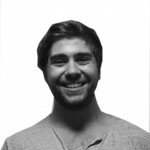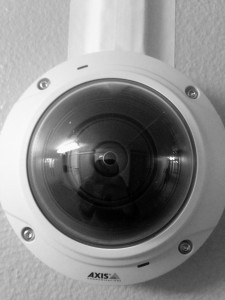 Recent months have revealed a mass revelation of intelligence gathered by the National Security Administration (NSA) leaked by whistleblower, Edward Snowden.
Recent months have revealed a mass revelation of intelligence gathered by the National Security Administration (NSA) leaked by whistleblower, Edward Snowden.
The issue is that the NSA was wire-tapping phones, hacking emails, and even using Facebook as a medium for creating behavior profiles for people in the United States and abroad.
The rules were bent in favor of the NSA to invade the privacy of millions of Americans without any legal justification, with the expressed purpose of keeping Americans safe from those who want to hurt us.
In this argument, fear is the effective and universal method of justifying the execution of individual rights in today’s world.
This subject boils down to two main issues. First, can we ethically justify breaking the fundamental tenets of our philosophy in order to preserve them? Second, does the former merely treat a symptom and allow the underlying infection to fester?
These two issues are not exclusive to the NSA and invasion of privacy. On our campus, we have had invasions of our privacy introduced into our daily lives with the goal of protecting students.
In Complex Residential Hall, one camera (with additional cameras being installed in coming weeks) was recently installed in the hallway to prevent the vandalism that has been plaguing the halls.

Due to the acts of a few individuals, the larger population of the dormitory has to pay the price of having Big Brother constantly looking over their shoulder. As far as I know, there have not been any more cases of vandalism after the installation, so it could be argued that the program was a success. More importantly, it has also created an air of paranoia. Now, it doesn’t matter if you are actually doing something wrong, but rather if it looks like you are doing something wrong; which, in almost every case, is not conducive to a healthy community. While we are used to cameras in public spaces on campus, this is their first appearance in a residence hall.
The second case involves the infamous Caf cameras aimed at stopping food burglars in their tracks. As we all know, the disappearance of food in the Caf is an ever-growing problem.
However, the big difference between Caf and dorm cameras is that the Caf is a public place and is not subject to privacy the same way a dorm hall is.
However, they are similar because they both attempt to treat a symptom of a crime as opposed to curing the underlying flaw of the system. Simply put, if people are stealing from the Caf, it means that they feel the need to eat and due to high food prices,they cannot do so. They are not scourges of civilization, preying on the Caf for malicious purposes; they simply feel that they cannot fulfill their dietary requirements otherwise. I do not condone the theft of food in the Caf. If it is happening, it is a red flag for the well-being of students, and it shows a need for change in the Caf.
It saddens me greatly to see these measures implemented on our campus. They reflect the lack of trust between the school and students, and students with one another, none of which have a place at a greater Gustavus. Where I can see many of the justifications for these invasions into our privacy as valid, they still represent a use of negative coercion to encourage students not to rip down posters in dorms or steal food from the Caf. Instead there should be an incentivizing students to care for the community they live in, and in turn empower students to live healthier lives and create the greater Gustavus that all of us were drawn to as prospective students.
Freedom is a fickle friend because its potential has such polar effects of being good or bad. There always needs to be some level of control in society, but these cameras are merely half measures that do not solve the overarching problems they are intended to solve. In the famous words of President Eisenhower, “If you want total security, go to prison. There you’re fed, clothed, given medical care and so on. The only thing lacking … is freedom.”